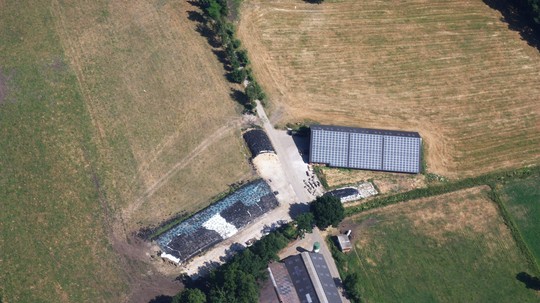Economics.
All of the articles we have published under the tag Economics, beginning with the most recent.
-

We’ll own it, kind of, maybe, one day: Nationalisation in the Labour Leadership Contest
Public ownership is popular, was a key feature of the last two manifestos and is necessary to address the ecological and regional crises. Only Rebecca Long-Bailey takes it seriously.
-

Making the other bodies visible
A reflection on the need to make visible both those who are hidden, and the hidden bodies of law, in the reproduction of wealth and power.
-

The IFS is a Mouthpiece for the Status Quo, including on Financial Transactions Taxes – and It’s Time to Call That Out
The IFS opposes Labour's Financial Transactions Tax, what is its ideological role in trying to discredit new economic thinking about the problems of British capitalism?
-

Is Production a Panacea? Reviewing Stolen and The Case for People’s Quantitative Easing
In the past year Grace Blakeley and Frances Coppola's books have confronted the problems of rentier capitalism. However, in idealizing "productive capital" of the past, they miss its own flaws and power.
-

Is Labour's new global tax enough?
Labour's new global tax policy rightly draws on radical new ways to ensure wealth is shared even when produced across borders. But limits remain and need addressing if this will challenge uneven development.
-

From Shareholder to Stakeholder Capitalism?
Capitalism's leading lights are worried about the viability of the current model of capitalism – the Left must use the next crisis to offer real change to the structure of ownership that underpins it.
-

To Enter Government the Liberal Democrats Will First Need An Economic Vision
The rise of the Liberal Democrats has been a thorn in Labour's side. However, without an economic vision replacing Labour seems like a distant prospect and misses a fundamental difference between the two parties.
-

Workers of the World Unite
The use of Marx to justify nationalist leftism is a well worn genre. This explores the falsehoods this always rests on, including both empirical data on migration and their misreadings of Marx.
-

Economic Planning and Degrowth: How Socialism Survives the 21st Century
The economy is already planned, the task is for that planning to be based on democratic & ecosocialist values not profit.
-

Can Labour Resist The Economic Orthodoxy of the Bank of England?
If Labour is to really overturn the prevailing orthodoxy of the Bank of England, it may have to take bolder action to end the Bank’s independence.
-

To Defeat the Banking Industry, We Must Back the Socialist Alternative
The challenges of the consumer banking sector is under discussed on the left. This is a problem and the continued presence of cooperatives banks today offer potential solutions we should not ignore.
-

The Dead Canary
The suffering of workers is the early warning sign that video game firms are entering a crisis.
-

Climate Change and Capitalism: A Political Marxist View.
To solve the disastrous impact of capitalism on the climate, we need to understand that the economy, the energy system, and the environment are all inextricably linked.
-

Coal is the past: time to plan for the future.
Appeals to a fantasy past won't save us. We need to imagine—and plan for—a better, greener future.
-

Ideological Predictive Modelling
The statistical model is a machine with features which can subordinated to its user’s intentions. This piece explores capital’s focus on predictive modelling as a disciplinary tool.
-

The rise of N-UBIs (non-universal basic incomes) and a national-populist ‘commons’
While Labour's new UBI report is focused on one policy, it is also informed by long-simmering debates over the meaning, definitions and implications of ‘the commons’, which limit its universality.
-

How Labour’s Common Sense on Neoliberalism Creates Space for Nationalism
If the ongoing Brexit farce has contributed anything positive to political discourse, it’s that we now have a clearer picture of where the reactionary encampments within our movement lie.
-

Resilience as Ideology
Resilience suggests being strong in the face of crisis. On the surface, it could be seen as a state of mind. Incorporated into the political economy of the everyday, however, it takes on an ideological form.
-

How To Profit From Poverty
In 2018, under the guise of social purpose, corporations invested a quarter of a trillion dollars to save the world.
-
Democratising public ownership: Labour’s new consultation
Today, the Labour Party launches an official National Policy Forum consultation on the subject of democratic public ownership.
-

Fake News Is A Symptom
The problems of our modern public sphere are not the inevitable results of progress - addressing the “post-truth” crisis requires reckoning with the politics of technology.
-

Private Equity By and For the People
Can the left reclaim a financial vehicle long associated with capitalist exploitation?
-

Managerial Failure
The contradiction between us working harder every day and the apparent productivity crisis is obvious to every worker. Here we look at the root cause: management.
-

Beyond “Taming” the Tech Giants
To truly challenge the power of the tech giants, we need more than better regulation. We need class struggle.
-

A Spatial Economy for the Many?
Britain's dramatic and unique spatial challenges demand radical answers. The Preston model offers one potential solution for matching both democratic and economic challenges.
-

Care, Not Car Parks
Labour’s promise of free parking at hospitals has been criticised as a waste of resources that should be going to care. But we don't have to choose between the two.
-

Tech Workers’ Inquiry at The World Transformed
Organising the tech industry may be difficult, but it’s crucial for challenging capitalism. A transcript of the Tech Workers Coalition session at TWT 2018.
-

Mistaking Technology for Capitalism and Capitalism for Technology
Technology is not merely bundles of wires, silicon, and touchscreens; it is a way of systematised thinking that emulates capitalism.
-

Power to the people!
Defending Labours ambitious and potentially transformative agenda for reforming the economy—one with new, cutting edge forms of public ownership and economic democracy.
-

Decentralising the Internet
The internet has become highly centralised due to its role as a site of capital accumulation. Challenging capital requires revisiting the internet’s architecture.
-

Balancing the books: the controversy over Labour’s macroeconomic policy commitments
The fiscal credibility rule appears to make a concession to 'sound finance', but has been defended as anything but. Can this position reflect wider understandings of progressive macroeconomics?
-

Tackling the Platforms: on IPPR's Digital Commonwealth report
Top-down regulation, bottom-up resistance, or some combination of the two? A response to IPPR's new report on technology platforms
-

We need a state-owned platform for the modern internet
It’s time to take the internet back from the American megacorps. But how should a nationalised version of the international internet look?
-

Worker Power in the Platform Economy
Trade union strategy in Germany in the age of platform capitalism
-

Servants of Industry? Getting Financialisation Wrong
When Jeremy Corbyn bemoaned Britain’s decades of industrial struggle and the narrow interests of the City of London, he revived one of the most enduring tropes in British politics: decline.
-
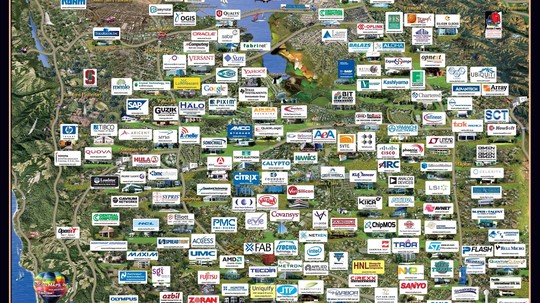
Towards an Organised Tech Industry—Part Two
Transcript of a panel co-hosted by Tech Workers Coalition and Tech Action at Left Forum 2018, on what a socialist vision for the tech industry should look like.
-
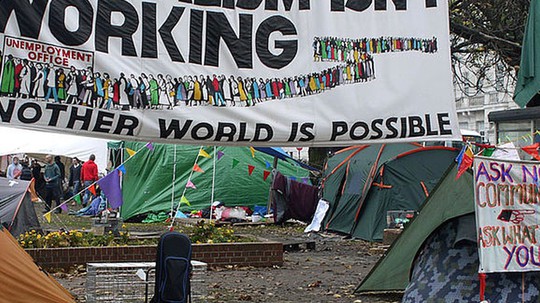
Class since the financial crisis
An extract from Charles Umney’s ‘Class Matters: Inequality and Exploitation in 21st Century Britain’.
-

When you find the forest, don’t forget the trees: A review of Class Matters by Charles Umney
Charles Umney’s ‘Class Matters: Inequality and Exploitation in the 21st Century’ is an excellent introduction to Marxist debates on class, but its understanding of class variety is limited.
-

Relinquishing Work
A collective reduction in working hours could benefit all, including those in insecure jobs.
-

Who Owns the City?
Spain is putting alternative models of ownership into practice. What can the left learn?
-

When we go into government, we all go into government together
We have the potential to rewrite history if we understand the magnitude of the situation we find ourselves in.
-

Designing the future: a review of Economic Science Fictions
A little over a century ago, there was an expectation that the future was ours to map and manage.
-

The “Great Man” Theory of History and New Labour
A worker reads "Dragons: Ten Entrepreneurs Who Built Britain" by Liam Byrne MP, emblem of the New Labour tradition
-

Technological Development For The Many
A transcript of a talk delivered at the technology breakout session of John McDonnell's State of the Economy conference at Imperial College
-

Is automation really such a threat?
Why anxiety over technology is simply misplaced anxiety over capitalism
-

Capitalist and Socialist Universal Basic Incomes
So should a UBI be part of a socialist vision for the future? Does a UBI even make sense as a transformative reform within capitalism?
-
Was There a Third Way in New Labour’s Social Exclusion Policy?
The theory of social exclusion became a central component of New Labour’s social policies and their drive for what they viewed as a programme of modernisation.
-
Ownership and Markets in Energy
The plans for partial re-nationalisation of energy in Labour's manifesto are too locally-oriented. Instead, we should embrace national planning of electricity through centralised ownership.
-

Labour’s New Economics Conference: Part Seven, Jeremy Corbyn's Speech
This is the seventh (and final) part of our write-up and analysis of Labour’s New Economics Conference on alternative models of ownership.
-

Public Ownership of the Public Sphere
Media reform can sometimes seem like a marginal concern. But bodies that generate and disseminate reliable knowledge should be seen as core elements of a revived public sector.
-

Labour’s New Economics Conference: Part Six, Plenary Session
This is the sixth part of our write-up and analysis of Labour’s New Economics Conference on alternative models of ownership.
-

Labour’s New Economics Conference: Part Five, Local Democratic Economic Strategies
The fifth part of our write-up and analysis of Labour’s New Economics Conference on alternative models of ownership.
-

Labour’s New Economics Conference: Part Four, Co-Operatives Session
The fourth part of our write-up and analysis of Labour’s New Economics Conference on alternative models of ownership.
-

Labour’s New Economics Conference: Part Three, Housing Session
The third part of our write-up and analysis of Labour’s New Economics Conference on alternative models of ownership.
-

Labour’s New Economics Conference: Part Two, Digital Session
The second part of our write-up and analysis of Labour’s New Economics Conference on alternative models of ownership.
-

Labour’s New Economics Conference: Part One, Introductory Session
The first part of our write-up and analysis of Labour’s New Economics Conference on alternative models of ownership.
-

The Meidner Funds: A Swedish Perspective on Alternative Models of Ownership
The Meidner funds, proposed in Sweden in the seventies, offer a potential complement to Labour's Alternative Models of Ownership report.
-
Monopoly’s Fallacy
Calls to break up tech giants miss the problem: monopolies are inevitable to competitive capitalism.
-

Universal Basic Services Won't Fix Our Economy
Universal basic services will not address all the flaws of universal basic income. It's the bare minimum, and we should aim higher.
-
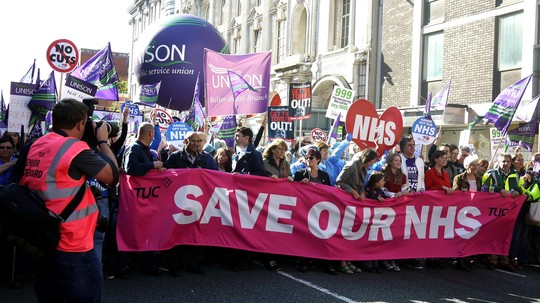
Battleground NHS
How the imposition of market forces has forced the NHS into critical condition.
-

Bitcoins and Beanie Babies
In 2017 the value of the world’s most used cryptocurrency doubled 4 times.
-

Seventy-seven nation industrial reserve army
The story told by the "Paradise Papers" is ultimately about the core structural fault-line in capitalism between capital and labour.
-

Labour’s Digital Strategy is a Missed Opportunity
The pace of technological advancement is double-edged.
-

Social Murder, Productivity Crisis & Irresponsible Technology Policy: The 2017 Budget
Wednesday’s budget was more striking for the economic indicators and forecasts produced by the Office for Budgetary Responsibility than for any of its specific policies.
-
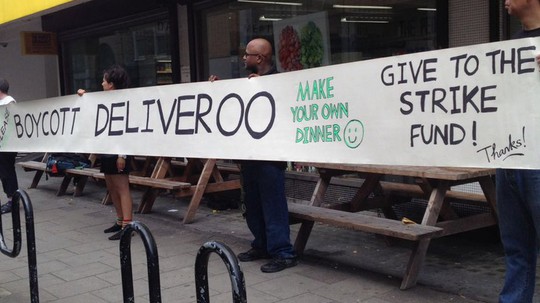
The Inevitability of the Gig Economy
The gig economy may finally be souring in the eyes of the public.
-

Three Cheers for the Unemployed
The Conservative government has made much fanfare recently of the fact that, alongside record employment levels, they have brought unemployment levels down to their lowest point since 1975.
-

Why read ‘Capital’, 150 years later?
Praised and reviled as ‘Capital’ is, few people actually manage to read it.
-

Building Platform Socialism: Beyond the Taylor Review
The future of work has moved to the centre of mainstream political debate.
-
A Socialist Bank? Labour’s National Investment Bank Proposal
The Labour Manifesto proposes to establish a National Investment Bank and a network of regional development banks.
-

Barely managing: on what’s missing from left political economy
There’s a difference between policies and power. If a left-wing party wants to turn its manifesto promises into political practice it needs to construct the capacity to do so.
-

Full Corbynism: Constructing a new left Political Economy beyond Neoliberalism
Labour is now on a permanent war footing and is a realistic contender for office. As a result, the left must now get much more serious about policy and strategy.
-
Labour's Alternative Models of Ownership Report
Our economy is clearly not working, and this report provides an indispensable analysis of why, situating present outcomes in fundamental structural flaws.
